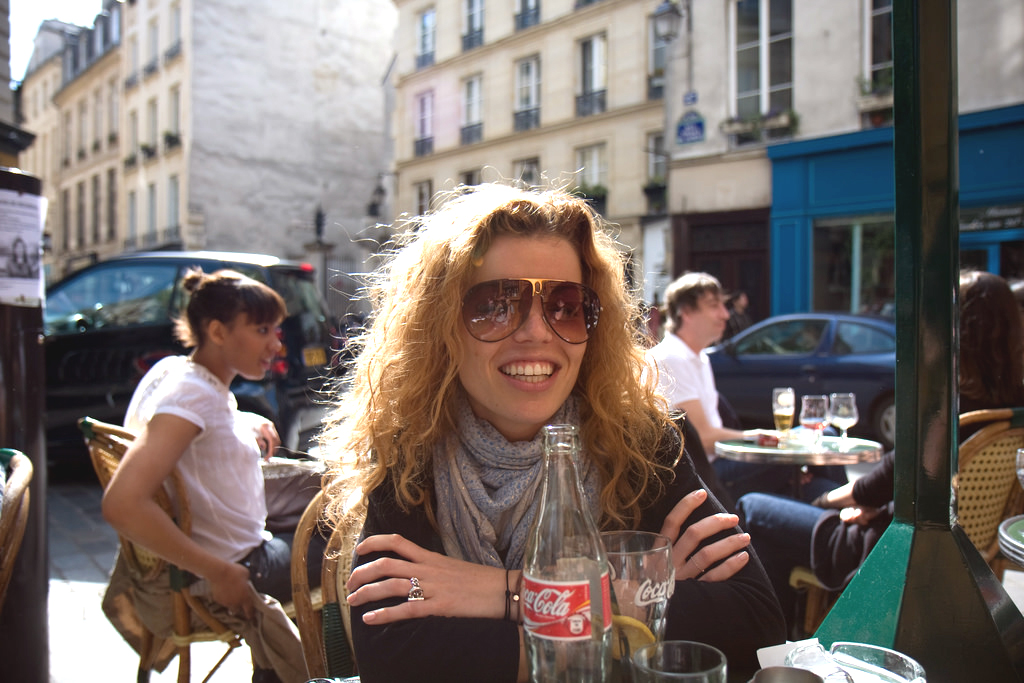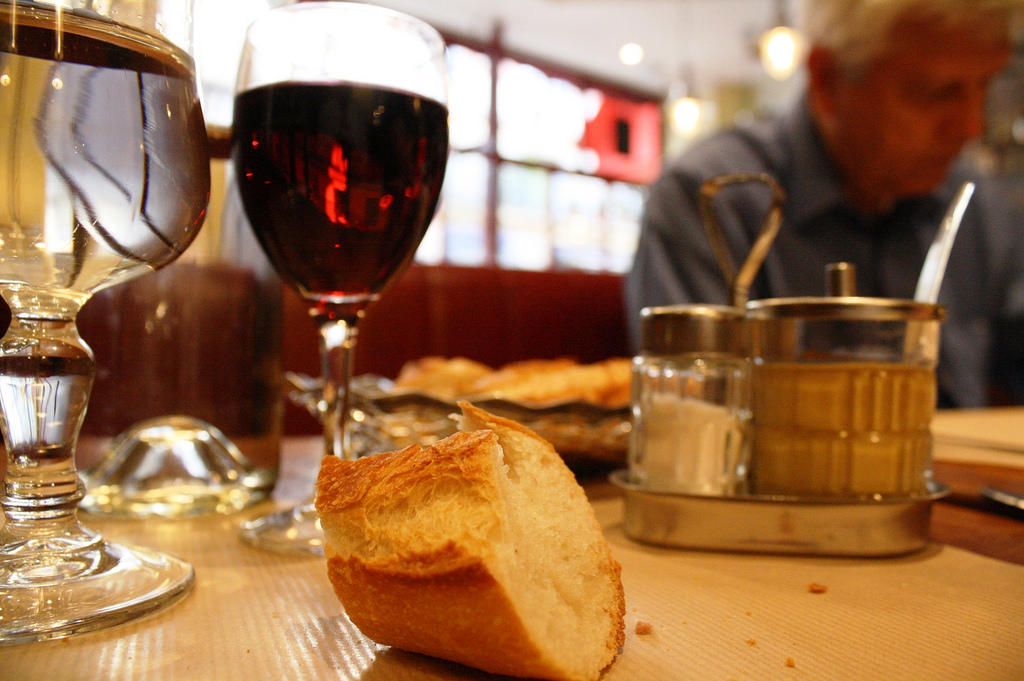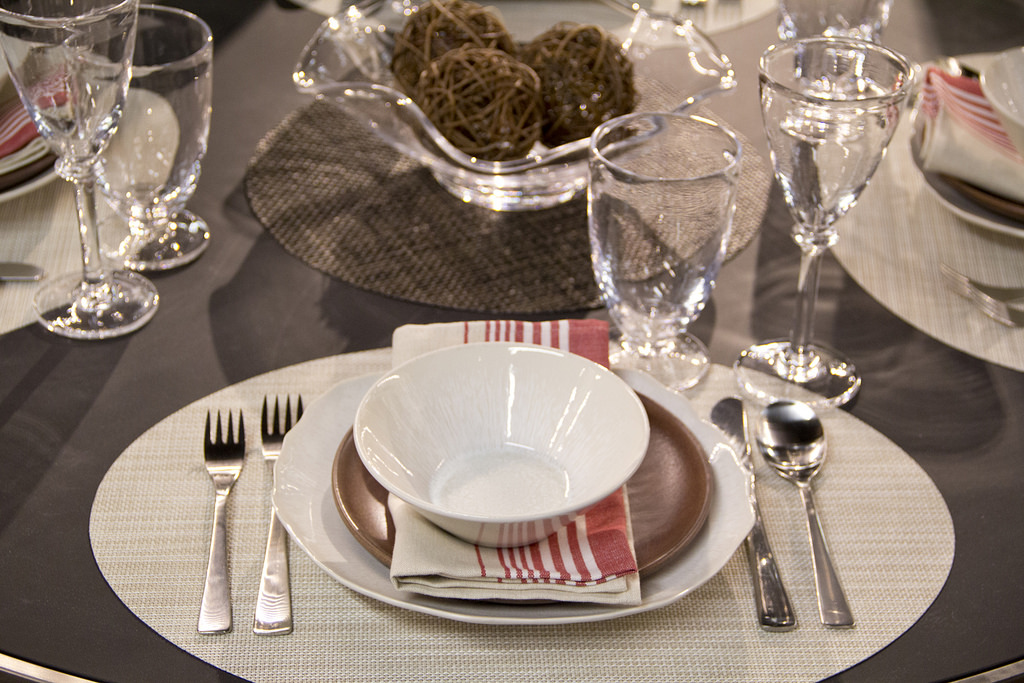Food and Drink: Dining Etiquette
Table Etiquette
The French eat with forks, knives, and spoons. Because French meals are so often multiple-course, multiple sets of utensils are used, working from the outside in as the courses progress. It is customary to eat with the fork in the left hand and the knife in the right.
Eating is almost never done with the hands. The exception is bread; it is considered polite to tear a piece of bread with your fingers before eating it, rather than taking a bite from a whole piece of bread.
In France, every diner’s hands should be visible on the table, wrists lightly resting on the edge when not engaged in eating. It is impolite to put your hands in your lap. The napkin always goes in the lap; however, it is customary to put your napkin in your lap only after everyone is seated at the table.
Bread is usually present at meals, and should be placed directly on the tablecloth unless the setting is very formal, in which case a bread plate will be provided. Salt and pepper are usually on the table at meals, and it is not considered rude to use them. In France, if you are asked to pass one or the other, you are not obligated to pass both as you are in some other Western countries.
Social Dimension of Dining
French meals are leisurely and usually involve the whole family, with an emphasis on good conversation. It is considered extremely rude to read, use a computer or phone, or watch television while at meals.
At mealtimes, each person receives a separate dish and table setting. Children may be served a small sip of wine; children as young as sixteen may drink a full cup at meals. Leaving food on one’s plate is not an insult; however, taking leftovers home is not a French custom.
It is considered polite to wait for the host or the head of the table to say Bon appetit before beginning the meal. Before drinking, it is customary to toast; the customary way is to raise a glass and say A votre santé (To your health).
Restaurant guests usually order for themselves. At business events, it is generally permissible to discuss business matters at meals, although guests should follow the lead of their hosts.
Article written for World Trade Press by Linda Williams.
Copyright © 1993—2025 World Trade Press. All rights reserved.

 France
France 


